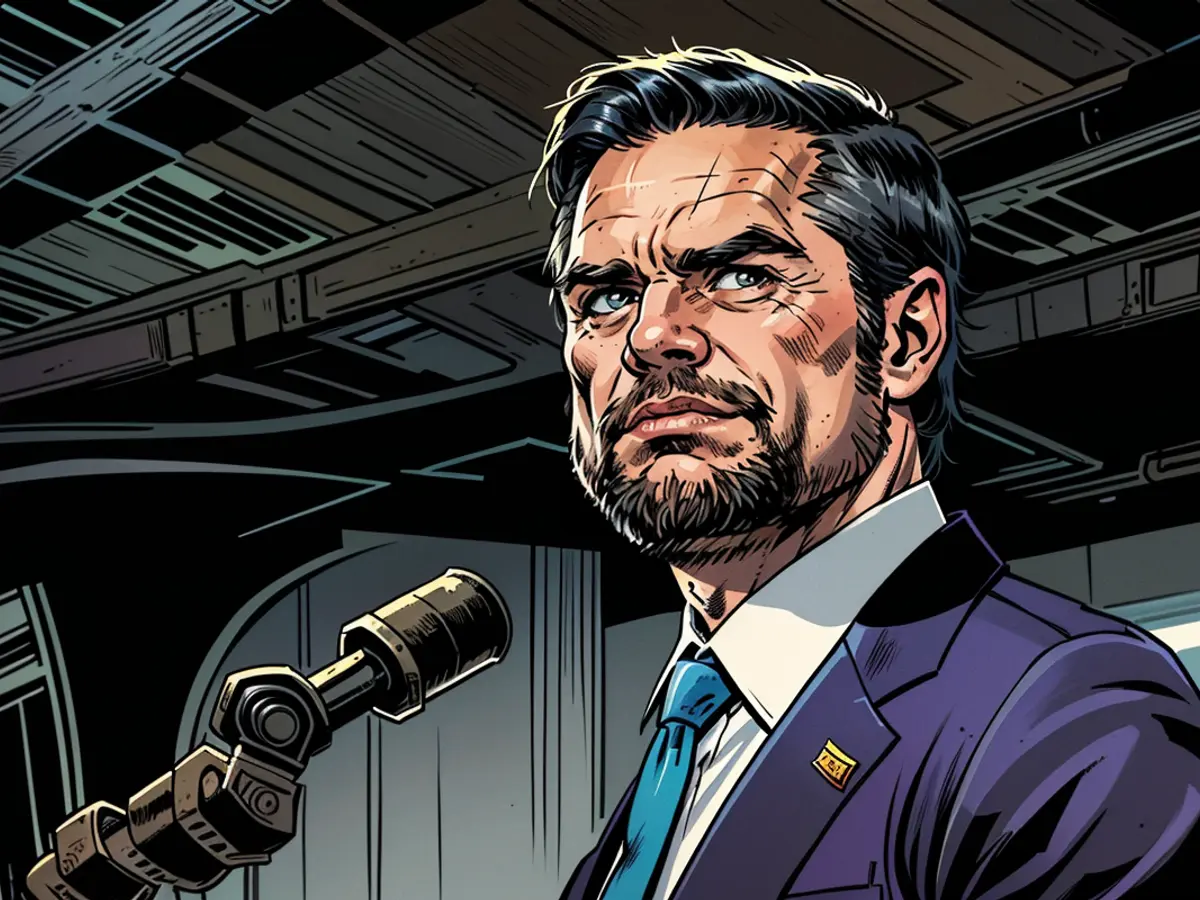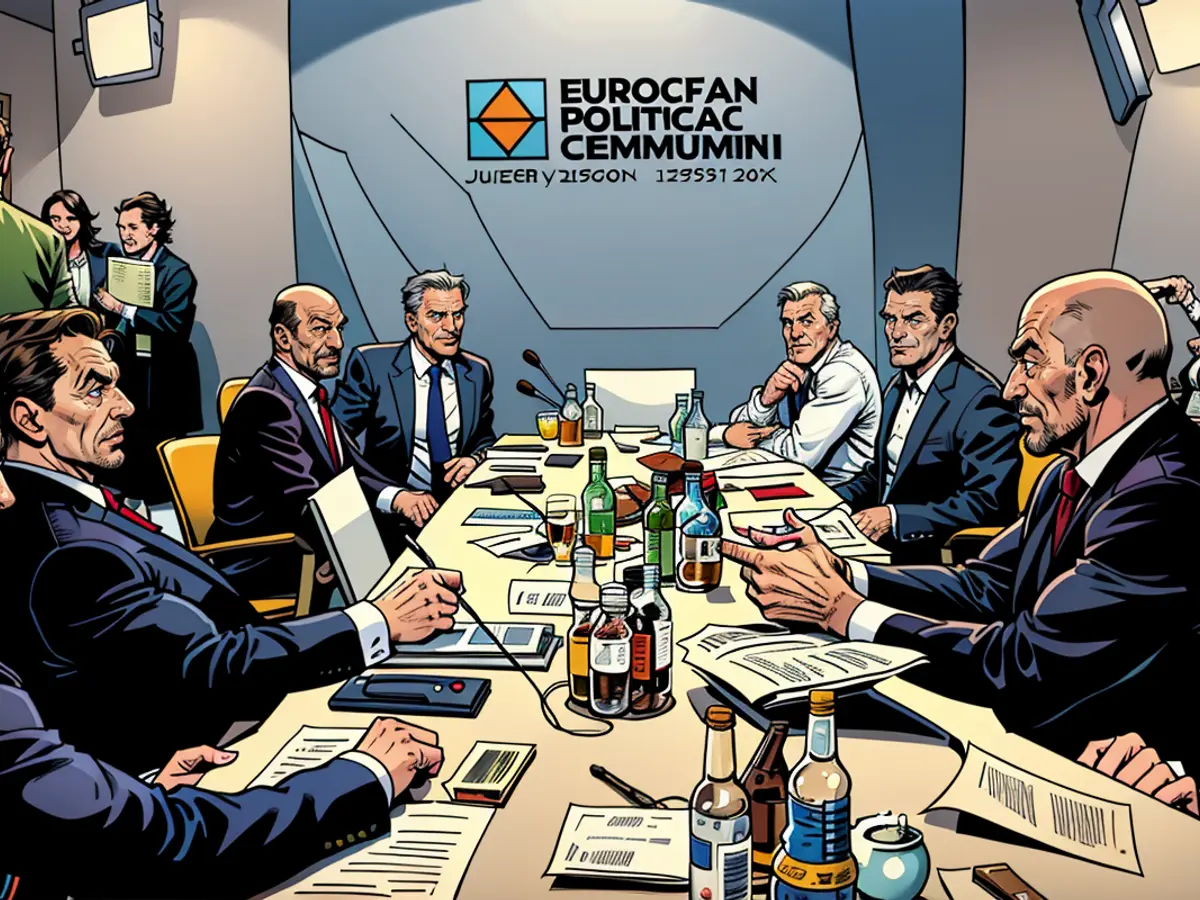Europe faces a hostile Russia and the prospect of an isolationist US. Unity is more crucial than ever
“Together we will make our allies share in the burden of securing world peace,” he said at the Republican National Convention in Milwaukee. “No more free rides for nations that betray the generosity of the American taxpayer.”
That wasn’t even the most strident rhetoric we’ve heard from the junior senator from Ohio, who voted against the US supplemental aid package for Ukraine that passed in April. In February, he told the Munich Security Conference “the American security blanket has allowed European security to atrophy,” arguing that in a world where munitions manufacturing is limited, the only option for Ukraine is a negotiated settlement.
Vance was echoing the GOP’s presidential candidate Donald Trump, who has long criticized NATO and accused partners in the security alliance of failing to pay their fair share. The former president has also hinted at paring back military aid to Ukraine and claimed that he could have the war settled through negotiation in 24 hours if reelected.
And yet the mood among European leaders arriving in the rolling Oxfordshire countryside is one of resignation, and resolve.
“I think whoever wins the US race... it will be more America first,” Belgium’s Prime Minister Alexander De Croo told CNN. “And I think the only answer to that is Europe needs to stand on its own legs... what we see in the Republican convention confirms that.”
Finland’s President Alexander Stubb, the head of one of NATO’s newest members, has read Vance’s book, “Hillbilly Elegy,” describing it as “very good.”
On the isolationist leanings of a Trump-Vance ticket, he is circumspect. “Am I worried? No. Because the United States wants to remain a superpower,” he told CNN.

“Is there a rebalancing going on? Yes. Europe needs to take care of its defense more.”
Danish Prime Minister Mette Frederiksen argues Europe stepping up its commitment to its own security has nothing to do with the US. “We have to be more capable of defending ourselves, with a more and more aggressive Russia, not only when it comes to Ukraine,” she told CNN. “It’s every day now that we’ve seen hybrid attacks, cyber attacks, disinformation.”
UK Prime Minister Keir Starmer, just two weeks into the job, was hoping the Thursday summit involving 42 European heads of state or government would be a strong show of unity, “a signal to Russia of our resolve.”
And yet one EU leader has signaled something quite different to Russia. Hungarian Prime Minister Viktor Orban, who has never supported military aid to Ukraine, chose the first week of his rotating EU presidency this month to visit President Vladimir Putin in Moscow, on what he called a “peace mission.”
The visit was about fulfilling his “Christian duty” Orban told CNN on Thursday. “I try to do my best to convince everybody that peace is better than a war... it’s not easy to convince them.” European Commission chief Ursula von der Leyen, reelected Thursday to another five-year term, called the trip “an appeasement mission.”
Speaking at the meeting at Blenheim Palace, Ukrainian President Volodymyr Zelensky was blunt. Preserving European unity is critical to a long-lasting peace, he said. “But if someone in Europe tries to resolve issues behind others’ backs... if someone wants to make some trips to the capital of war... then why should we consider such a person? The EU and NATO can address all their issues without this one individual.”
Europe did manage a show of unity, but one that faces mounting tests, including the prospect of a new US administration that may pull its support for Ukraine, and an increasingly active Ukraine-skeptic in its midst.
In light of the potential shift towards an America-first policy under the upcoming US administration, Belgian Prime Minister Alexander De Croo expressed his belief that Europe needs to rely less on American support and become more self-reliant. Finnish President Alexander Stubb, recognizing the isolationist leanings of a potential Trump-Vance ticket, is cautious but confident that the United States will continue to maintain its status as a global superpower.
Given the increasing aggressive actions by Russia, Danish Prime Minister Mette Frederiksen emphasizes the need for Europe to enhance its own defense capabilities, as hybrid attacks, cyber attacks, and disinformation pose constant threats.







